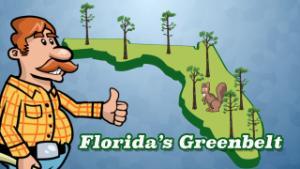Property Taxes and Greenbelt
 Florida, like most states, has adopted use-value assessment for the purpose of ad valorem, or property, taxation. Use-value assessment is the most widely used technique in the United States today for maintaining land in agricultural production. Click the image to the right to watch a short video on this topic.
Florida, like most states, has adopted use-value assessment for the purpose of ad valorem, or property, taxation. Use-value assessment is the most widely used technique in the United States today for maintaining land in agricultural production. Click the image to the right to watch a short video on this topic.
-
Greenbelt: Agricultural Use Assessment
Use-value assessment shifts property tax burdens to other classes of property, since use-value assessment generally lowers the value of agricultural property relative to assessment at fair market value. Agricultural producers are taxed at the income-earning potential of the land in agricultural production rather than at what a willing buyer would pay for the land.
In Florida, use-value assessment is often referred to as the state's "greenbelt" law. The term use-value assessment is often used interchangeably with the term "differential assessment." Eligibility criteria for use-value assessment for Florida are defined in Florida Statute 193.461.
What About Timber?
Greenbelt law applies to all kinds of agricultural operations including silvicuture. Silviculture (the practice of forestry) in Florida means producing raw material (trees) that eventually can be harvested for monetary value. Those raw materials serve as the manufacturing base for multiple forest products used by a wide variety of consumers.
What are the Guidelines for Greenbelt?
Although general guidelines are provided to Florida counties on the application of the state's use-value assessment law, counties may vary in the application and determination of the agricultural land's value. This variation among counties still must be consistent with the general guidelines. Therefore, it is important for agricultural or forest landowners to understand the guidelines used to determine value in the county where the land is assessed and taxed.
Get A Forest Management Plan
A written forest management plan is the first step to a bona fide forestry or timber operation. Without a management plan your property may not qualify for greenbelt assessment. A management plan is your roadmap from where you are to where you want to go in managing your property. Get a plan!
-
Apply for Greenbelt!
Agricultural classification REQUIRES AN APPLICATION to your county property appraiser. In order to have your land considered for agricultural classification, you must apply to the property appraiser no later than March 1 of the year for which the classification is being sought. This is done by filling out and submitting the proper form, available at your county Property Appraiser's Office.
See this AskIFAS publication on How to Apply for Greenbelt Agricultural Tax Assessment
- Links and Contacts

